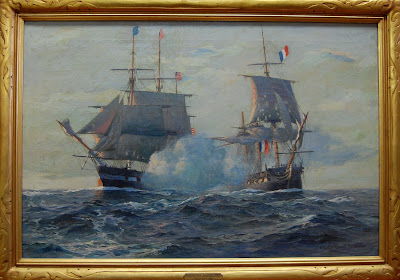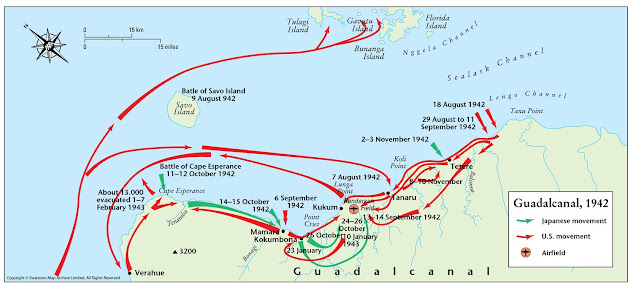Naval Namesakes: Whipple Street
---Christina Anderson, Curatorial Volunteer
Many streets, buildings, and institutions in Rhode Island are named to honor the Narragansett Bay area’s rich naval heritage. This regular feature to the museum’s blog provides a brief look at the people, places, and events behind the names.
Whipple Street on NAVSTA Newport is named for Abraham Whipple, an American sea captain born near Providence on September 26, 1733. He began his career at sea in the West Indies trade and commanded the privateer Game Cock from 1759 to 1760. Locally, Whipple is famous for leading the group of Rhode Islanders who burned and sunk the British revenue cutter Gaspee on June 18, 1772. In 1775, he was appointed Commodore of the Rhode Island State Navy (the first colony/state-authorized naval force consisted of two sloops, Katy and Washington). Later that same year he was commissioned a Captain in the Continental Navy and took command of the frigate Columbus during the first American naval amphibious expedition. While cruising Narragansett Bay and the New England coast, Whipple ran the British blockade and captured five British prizes. In 1778 and 1779, he cruised Atlantic waters in various commands and captured many more prizes including eight ships off New Foundland with cargoes totaling over one million dollars. Whipple continued his sea service until forced to surrender on May 12, 1780 following a four-month siege of Charleston. After the war he became a farmer in Rhode Island but later moved his family to Ohio. He died in Marietta, Ohio, May 27, 1819.
USS Whipple (Destroyer No. 15) was also named for the Rhode Island sea captain.
View Larger Map
Street Sign Image by Christina Anderson, Courtesy of the Naval War College Museum
Whipple Portrait, Courtesy of the U.S. Naval Academy Museum
Many streets, buildings, and institutions in Rhode Island are named to honor the Narragansett Bay area’s rich naval heritage. This regular feature to the museum’s blog provides a brief look at the people, places, and events behind the names.
Commodore Abraham Whipple (1733-1819) Commodore of the Rhode Island State Navy
 |
| Portrait of A. Whipple by Edward Savage, 1786 |
Whipple Street on NAVSTA Newport is named for Abraham Whipple, an American sea captain born near Providence on September 26, 1733. He began his career at sea in the West Indies trade and commanded the privateer Game Cock from 1759 to 1760. Locally, Whipple is famous for leading the group of Rhode Islanders who burned and sunk the British revenue cutter Gaspee on June 18, 1772. In 1775, he was appointed Commodore of the Rhode Island State Navy (the first colony/state-authorized naval force consisted of two sloops, Katy and Washington). Later that same year he was commissioned a Captain in the Continental Navy and took command of the frigate Columbus during the first American naval amphibious expedition. While cruising Narragansett Bay and the New England coast, Whipple ran the British blockade and captured five British prizes. In 1778 and 1779, he cruised Atlantic waters in various commands and captured many more prizes including eight ships off New Foundland with cargoes totaling over one million dollars. Whipple continued his sea service until forced to surrender on May 12, 1780 following a four-month siege of Charleston. After the war he became a farmer in Rhode Island but later moved his family to Ohio. He died in Marietta, Ohio, May 27, 1819.
USS Whipple (Destroyer No. 15) was also named for the Rhode Island sea captain.
View Larger Map
Street Sign Image by Christina Anderson, Courtesy of the Naval War College Museum
Whipple Portrait, Courtesy of the U.S. Naval Academy Museum



Comments
Post a Comment